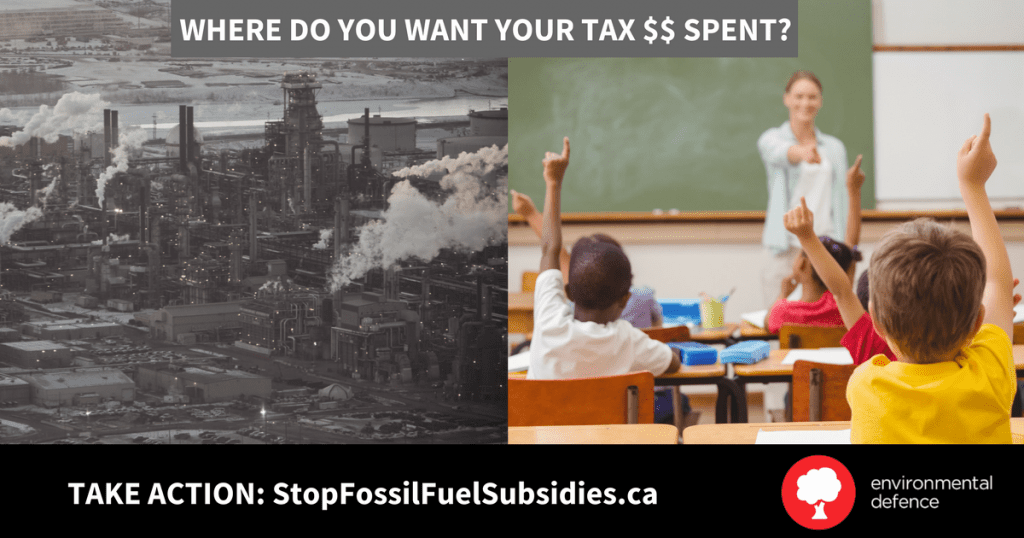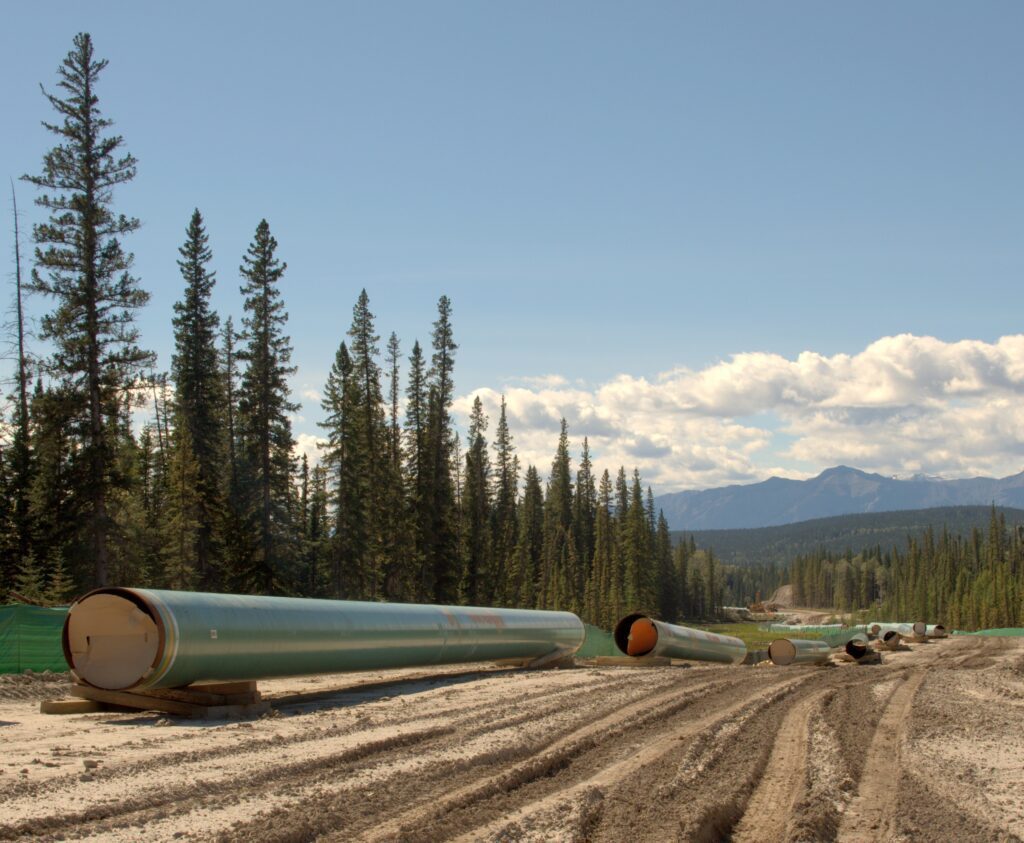The upcoming federal budget will be another sign of how seriously the government intends to tackle Canada’s environmental issues – many of which are far from resolved.
The last two budgets made progress on some environmental and health issues by allocating funding for climate change, public transit, getting northern communities off of diesel power, and taking a small bite out of the billions that the government gives to oil and gas companies. This year’s budget must continue to move forward on these and other issues that affect the health of Canadian and global ecosystems.

CLIMATE CHANGE AND ENERGY
The federal government announced earlier this month that it will invest up to $1.01 billion over five years to support: the proposed new process for environmental decision-making and energy project reviews, including funding for increased Indigenous and public participation; increased scientific capacity in federal departments and agencies; and changes required to protect water, fish and navigation. This proposal for increased funding is laudable, but Bill C-69 won’t become law until spring 2019 at the earliest. This is a problem as current environmental assessment and energy project review processes don’t have enough funding to allow communities to have their say.
New funding is needed now to improve public trust in the environmental decision-making process for current projects and prepare for the new impact assessment regime. We are looking for the government to follow through on its commitment to conduct a strategic assessment for climate change, including funding for an expert panel and public and expert consultation process to ensure future energy and industrial projects are aligned with Canada’s climate commitments.
The federal government also needs to make progress on the subsidies it gives to oil and gas companies. The Canadian government can’t keep claiming that the cupboards are bare while doling out more than a billion dollars per year to petroleum companies who are making billions in profits. Last year’s tax changes that reduced federal oil and gas subsidies by about $50 million per year. While these changes were welcome, we need to see a short timeline established for eliminating these fossil fuel subsidies, so that Canadians know that their tax dollars aren’t undermining action on climate change.

Under the Paris Agreement, Canada also has an obligation to provide funds to poor, developing countries to assist them in addressing climate change. These countries are the hardest hit by climate change while being the least responsible for causing the problem. The federal government needs to allocate more funding to this issue before the Paris Agreement comes into force in 2020 so that Canada is contributing its fair share to the $100 billion per year committed under Paris by industrialized nations.
Some, or all, of the shortfall in the funding for developing countries can be filled by Canada working with international allies to put a tax on fuels used in international aviation. This is a large and growing source of carbon emissions that are not covered under any international climate agreement.
WATER AND PESTICIDES MANAGEMENT
Last year, the federal budget included $44.84 million over five years – about $9 million per year – for Great Lakes protection. While that was an increase from previous years, it was a long way from what’s needed to protect the lakes. This year’s budget must top up last year’s down payment.

We’ll also be looking to see that the new Canadian Agricultural Partnership includes adequate funding for initiatives that improve water quality and reduce runoff pollution into the lake. $185 million over five years should be included in the federal budget to be strategically invested in areas of the country where degraded water quality is linked to runoff pollution. Lake Erie should be a priority area. Related to this is additional funding to support the implementation of the Lake Erie action plan including ongoing science and research needs across the watershed.
The federal government should be making other investments in sustainable agriculture to improve human and ecosystem health. One key example is funding to support research and knowledge transfer of ecologically sustainable farming practices and approaches. Integrated pest management and organic farming practices can reduce farmers’ heavy reliance on chemicals, and improve soil health, water quality, biodiversity and habitat. Monitoring and reporting programs related to pesticide usage and exposure to pesticides are needed to assess and reduce risks to human health and the environment.
FREE SPEECH FOR CHARITIES
Tomorrow’s budget could be a game-changer for charities and free speech if the federal government makes the necessary changes to the laws that govern charities as proposed by the report of the government’s Expert consultation panel. However, the government has not yet acted on the Panel’s recommendations even though they had promised to respond to the Panel’s report by the beginning of the summer of 2017. That’s why 17 organizations sent out a press release asking the government to make good on its election and mandate letter promises and allow charitable organizations to carry out their work free from political harassment and to modernize the rules governing the charitable sector without further delay.
These are the benchmarks that Environmental Defence will be using to assess tomorrow’s federal budget, and the government’s commitment to improved environmental protection and performance in Canada.









